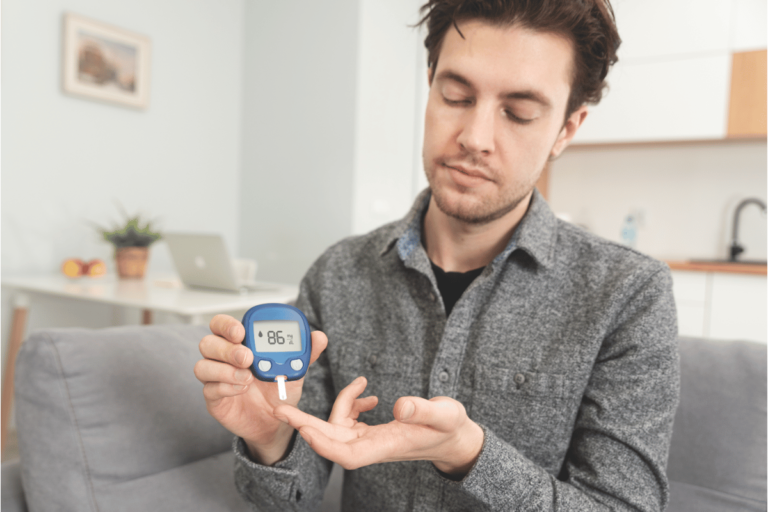Fasting Guidelines for Blood Testing Unveiled
Discover the key fasting guidelines for blood tests. For accurate glucose results, fast for 8 hours; triglycerides need 10-12 hours. Fasting establishes a clear baseline, crucial for precise readings. Some lipid panels offer non-fasting options. Exceptions exist like postprandial and HbA1c tests not requiring fasting. New LDL measurement methods may not necessitate fasting, enhancing convenience. Healthcare providers can offer guidance on fasting challenges or alternatives. Understanding these guidelines guarantees your test results are reliable and informative. Uncover the secrets of fasting guidelines to optimize your blood testing experience.
Key Takeaways
- Fasting ensures accuracy for glucose and triglyceride tests.
- Recommended fasting periods: 8 hours for glucose, 10-12 hours for triglycerides.
- Exceptions exist for non-fasting lipid panels and specific tests like HbA1c.
- Newer methods for LDL measurement may not require fasting.
- Consult healthcare provider for fasting difficulties or alternative testing options.
Importance of Fasting for Blood Testing
Fasting plays a crucial role in ensuring accurate results for specific blood tests such as glucose and triglycerides. When you fast before these tests, the benefits include a clearer picture of your baseline levels.
For glucose tests, fasting for about 8 hours is recommended, while triglyceride tests typically require fasting for 10-12 hours. These fasting periods help healthcare providers assess your true levels without the influence of recent meals.
While fasting may be necessary for some tests, alternatives like non-fasting lipid panels are available for certain situations. These panels can provide valuable information without the need for fasting, offering convenience and flexibility in testing schedules.
Opting for the appropriate fasting or non-fasting option can lead to more accurate results for your blood tests.
Recommended Fasting Periods for Specific Tests
To guarantee accurate assessment of specific blood tests like glucose and triglycerides, observing the recommended fasting periods is essential for obtaining reliable results. Glucose tests typically require an 8-hour fasting period, while triglyceride tests necessitate a fasting duration of 10-12 hours.
Ideal fasting times ensure that the levels of glucose and triglycerides in your blood aren't influenced by recent food intake, providing a clear picture of your health status. While fasting is the standard recommendation for these tests, some newer methods of measuring LDL cholesterol may not require fasting.
If you have difficulty fasting, consult with your healthcare provider for alternatives to ensure the accuracy of your blood test results.
Exceptions to Fasting Requirements
Exceptions to the fasting requirements may apply for certain blood tests, depending on the specific testing method and healthcare provider recommendations. When fasting isn't feasible, there are fasting alternatives and exceptions to take into account. Here are some non-fasting testing options and considerations:
- Postprandial Testing: Some tests can be done after a meal instead of fasting.
- Random Glucose Test: Measures glucose levels irrespective of fasting, useful for certain situations.
- HbA1c Test: Provides an average blood sugar level over the past 2-3 months, doesn't require fasting.
- Cholesterol Test: Newer methods may not need fasting, consult your healthcare provider for guidance.
Impact of Newer LDL Measurement Methods
The advancement of newer LDL measurement methods has revolutionized cholesterol testing practices in healthcare. These innovative techniques have impacted how lipid levels are assessed and have raised questions about the necessity of fasting before lipid profile tests. Some of these new methods may not require fasting, providing a more convenient option for patients undergoing lipid testing. Below is a comparison table showcasing the characteristics of traditional LDL measurement methods versus newer approaches:
| LDL Measurement Methods | Fasting Requirement | Impact on Lipid Profiles |
|---|---|---|
| Traditional Methods | Required | Established |
| Newer Methods | Not always necessary | Evolving, may vary |
Understanding the differences between these methods can help healthcare providers and patients make informed decisions regarding cholesterol testing protocols.
Expert Insights on Fasting Guidelines
Expert opinions from various healthcare professionals provide valuable insights into the importance of fasting guidelines for specific blood tests, shedding light on ideal testing conditions for accurate results.
When considering fasting for blood tests, patient concerns and alternative options should be taken into account:
- Patient concerns: Addressing patient worries about fasting requirements can improve compliance and overall satisfaction.
- Alternative options: Exploring non-fasting blood tests or alternative testing methods could provide flexibility for patients with specific dietary needs or conditions.
- Healthcare provider guidance: Seeking advice from healthcare providers can help determine the necessity of fasting based on individual health factors.
- Educational resources: Providing patients with educational materials on fasting benefits and procedures can enhance understanding and cooperation.
Conclusion
In closing, keep in mind that 'prevention is better than cure.' Following fasting guidelines for blood testing is essential for accurate results.
Consult your healthcare provider for personalized advice on fasting durations for specific tests. Stay up to date on evolving methods that may eliminate the need for fasting in certain cases.
Your health is worth the effort of fasting before blood tests. Stay proactive, stay informed, and prioritize your well-being.







